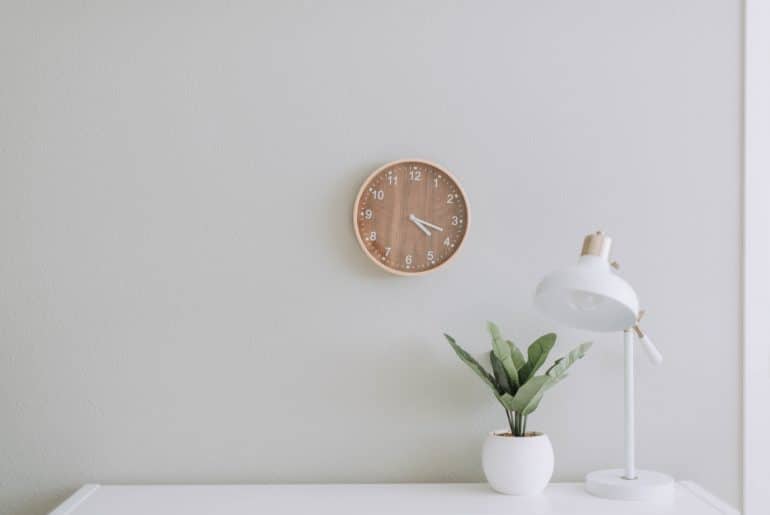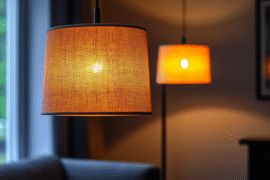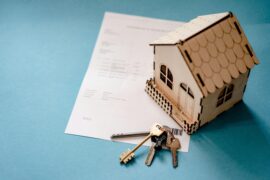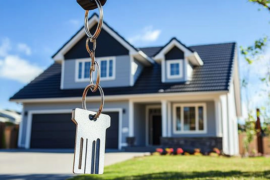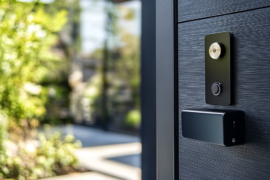This article may contain references to products or services from one or more of our advertisers or partners. We may receive compensation when you click on links to those products or services. Nonetheless, our opinions are our own.

Updated by Albert Fang
Buying a home can be a very overwhelming experience for many. With so many different types of loans, real estate lingo, and a vast array of home prices, you’re probably feeling lost and unsure of where to even begin in your home-buying experience. Your first home-buying experience might not be entirely what you expect, so here are some tips to get you through it.
Be realistic.
Even if you’ve found your dream home, understand that you might not get it. There’s a pretty good chance if it hits all the marks, it’s someone else’s dream home, too. You should also always be realistic about the idea that a smaller budget means you’ll have to work to create your dream home. It’s probably not move-in ready. You might have to replace the bathroom cabinets or install an HVAC system, depending on what you can actually qualify for in your desired neighborhood. Staying realistic will prevent you from major disappointment throughout the process.
Put something down.
Most lenders recommend that you should have 20 percent of the total cost of the home available to place as a down payment and secure the loan. In a housing market where the average home is over $250,000, that means you should have $50,000 saved up. Of course, most homebuyers can’t afford that. In fact, most people couldn’t afford a home in over 70 percent of the U.S. using a three percent down payment and having a 28 percent debt-to-income ratio just based on their salary alone. All these numbers seem very confusing for many people.
The bottom line is that if you’re looking to buy a home, you should have enough money to provide a down payment for any of the loans you qualify for. You might not be able to reach the 20 percent for a variety of reasons (just had a baby and need a bigger home, moving across the country for a new job on short notice, etc.), but having a large chunk of cash to put down is always a benefit. Even if you choose to go with a loan option that only requires three percent or one percent, putting more down than necessary will only benefit you in the long run.
Hire a realtor.
Hiring a professional who can explain all of this to you is a must. Many people believe they can just do it themselves, but home-buying isn’t something you want to DIY. There are, unfortunately, many people who prey on unsuspecting first-time homebuyers and scam them. Whether it’s wiring money for a down payment, posting inaccurate photos online with the listing, or not disclosing major home repair needs during the closing, not everyone is out there to make your home-buying experience a breeze. Save yourself the hassle and instead hire a realtor. They not only have to attend classes for a period of time to get certified in their field, but they can explain things to you and help you navigate the home-buying experience and world of realty.
Stick to your budget.
When you’re ready to start shopping for a home, set a budget and stick to it. Your budget shouldn’t be movable. It needs to stay firm. Make sure you budget for homeowners’ insurance, taxes, and HOA fees – or even insurance the bank makes you pay that saves them in case you default (this is usually if you put less than a 10 percent down payment).
Gauging the cost can be tough to do at first, especially when you first start looking at homes. The best rule of thumb is to pick a home that’s well under budget and set a firm cap of total monthly expenses. If you don’t want to spend more than $1,200 a month, then make sure you find a place where your mortgage won’t be more than $700 a month so you can afford the taxes, insurance, and any other fees that come with it. Plus, you’ll usually still have utilities (water, power, internet, just to name a few), so you’ll quickly realize that your max budget drops dramatically once you put those factors in play. It can be disheartening to realize that your dream home is further out of your reach, but that just means you can purchase a home and turn it into your dream home.
Consider renovating.
A fixer-upper home is starting to become more of a reality for many first-time homebuyers. In fact, many are openly choosing to purchase homes that need renovations. It gives them the freedom to make choices as they please! Whether it’s upgrading the kitchen with RTA cabinets or expanding the master bathroom, many first-time homebuyers are content with having a home that they can make into their oasis.
While move-in-ready homes are still readily available on the market, many are considering flipping their first home. Flipping comes with a lot of financial benefits, too. The additions you make to your home increase the return called equity. When you make your down payment, that’s how much of the house you officially own (because that money wasn’t financed by a lender). It doesn’t mean that’s how much your house is worth, but it does mean that when your home value increases (as it usually does when you do major upgrades and renovations), your equity increases as well – because what matters is the amount you owe. Your financed amount doesn’t change when your home value increases.
For example, if you put down $40,000 on a $200,000 home, then you’ve financed the remaining $160,000. If it’s worth $200,000, then you own 20 percent of it. However, if your home’s value doubles with some renovations you do, the amount you owe to your lenders doesn’t change. But, the worth of your property does, and that means your equity increases with it. So, now you own 60 percent of the home. Cool, right?
Final thoughts.
Home-buying doesn’t have to be scary. Hire a professional, stick to your budget and do your homework. It’s that easy!

Reviewed and edited by Albert Fang.
See a typo or want to suggest an edit/revision to the content? Use the contact us form to provide feedback.
At FangWallet, we value editorial integrity and open collaboration in curating quality content for readers to enjoy. Much appreciated for the assist.
Did you like our article and find it insightful? We encourage sharing the article link with family and friends to benefit as well - better yet, sharing on social media. Thank you for the support! 🍉
Article Title: 5 Tips for First-Time Homebuyers
https://fangwallet.com/2021/03/27/5-tips-for-first-time-homebuyers/The FangWallet Promise
FangWallet is an editorially independent resource - founded on breaking down challenging financial concepts for anyone to understand since 2014. While we adhere to editorial integrity, note that this post may contain references to products from our partners.
The FangWallet promise is always to have your best interest in mind and be transparent and honest about the financial picture.
Become an Insider

Subscribe to get a free daily budget planner printable to help get your money on track!
Make passive money the right way. No spam.
Editorial Disclaimer: The editorial content on this page is not provided by any of the companies mentioned. The opinions expressed here are the author's alone.
The content of this website is for informational purposes only and does not represent investment advice, or an offer or solicitation to buy or sell any security, investment, or product. Investors are encouraged to do their own due diligence, and, if necessary, consult professional advising before making any investment decisions. Investing involves a high degree of risk, and financial losses may occur including the potential loss of principal.
Source Citation References:
+ Inspo
